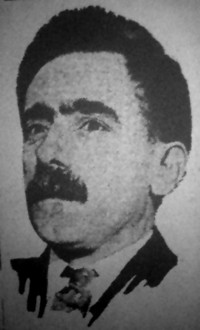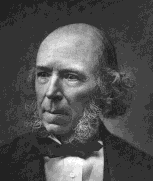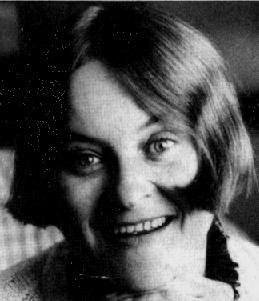Sp
Spaak, Paul-Henri (1899-1972)
Lawyer and MP had been for several years the leading figure in the Left Opposition of the POB (Belgium Party of Labor) and the editor of their paper, Action socialiste. In 1934 he had even corresponded with Trotsky. However after several weeks of secret negotiations he finally entered the national government of Paul van Zeeland on 25 March 1935 as Minister of Transport with the President of the POB and the leading man of the B3RightB2 Emile Vandervelde.
Spargo, John (1876-1966)
 Born in England, Spargo moved to the U.S. and became an active socialist. Member of the Socialist Party of America, and led the party to get more involved in women's issues, but resigned in 1917 over its antiwar policy. In 1917, along with Samuel Gompers he organized the pro-war American Alliance for Labor and Democracy. By the middle 1920s, he had turned away from leftist politics, developing his own theories of what he called "socialized individualism". He became a member of the Republican Party and supported Calvin Coolidge in the election of 1924. He was also involved in the settlement house movement.
Born in England, Spargo moved to the U.S. and became an active socialist. Member of the Socialist Party of America, and led the party to get more involved in women's issues, but resigned in 1917 over its antiwar policy. In 1917, along with Samuel Gompers he organized the pro-war American Alliance for Labor and Democracy. By the middle 1920s, he had turned away from leftist politics, developing his own theories of what he called "socialized individualism". He became a member of the Republican Party and supported Calvin Coolidge in the election of 1924. He was also involved in the settlement house movement.
Spargo was author of numerous articles in journals such as the International Socialist Review, and Comrade. His many books include The Bitter Cry of the Children (1906), a biography of Karl Marx (1910), Applied Socialism (1912), Socialism and Motherhood (1914) and The Psychology of Bolshevism (1919).
Further Reading: John Spargo Archive.
Spencer, Herbert (1820-1903)
 English sociologist and philosopher, an early advocate of the theory of evolution, advocating the preeminence of the individual over society and of science over religion, part of the “First Positivism” alongside Auguste Comte in France.
English sociologist and philosopher, an early advocate of the theory of evolution, advocating the preeminence of the individual over society and of science over religion, part of the “First Positivism” alongside Auguste Comte in France.
From a Non-Conformist family, Spencer was largely self-taught, working for a few months as a schoolteacher and for 4 years as a civil engineer on the railways before breaking into journalism with letters to The Nonconformist and other progressive papers before gaining a position as subeditor of The Economist.
Spencer developed friendships with George Eliot, T.H. Huxley, Beatrice Webb and J.S. Mill and in 1851 he published Social Statics, arguing for an extreme form of economic and social laissez-faire. Coming into money in 1853, Spencer resigned his position with The Economist to devote himself to writing and publishing his own work.
In 1860 he published The Principles of Psychology which he saw as part of his magnum opus, The Synthetic Philosophy, which was to integrate the natural sciences in a single sythetic system along with ethics and pscyhlogy and sociology at the centre. A number of volumes of the projected work appeared over the next 20 years, but the project was never completed, with his views becoming increasingly out of step with the dominant currents of thinking after the 1860s.
Despite Spencer's efforts to separate himself from his Positivist rival, Comte, as set out in Reasons for Dissenting from M. Comte, there is a clear similarity in their views: an evolutionary view of social progress through various stages, with natural science providing the solution to man's problems and sociology emerging as the supreme science of sciences. The specific character of Spencer's positivism is his championing of individualism. When Darwin published his Origins of Species in 1859, Spencer accepted Darwin's theory of natural selection, and it was Spencer in fact who coined the term “survival of the fittest”. Spencer foresaw a future epoch of unfettered individualism arising only after overcoming a period of War and Socialism, in which the unwarranted interference of the State in the natural evolution of society would be transcended.
Spencer was the pioneer of the method of social theory which formulated general principles held to be laws of nature, and then justified propositions about social development and history on the basis of the said natural laws. For example, Spencer held that there was a fundamental law called “the law of the persistence of force” which caused continual change in organisms, “the law of the multiplication of effects,” which brought about greater diversity and ultimately an individualist society. Spencer took this as far as parallels between transport and other communication systems and the veins and nerve systems of animals.
Spender, Dale (1943-)
 Australian feminist, started lecturing at James Cook University in 1974 and then went to London and published the book Man Made Language. She taped people’s conversations and discovered that it was generally women who did most of the support work. “They asked the right questions, provided encouragement and feedback, made the male speaker feel important. But this meant that men did most of the talking,” Dale says. “Women who did talk for more than about one third of the conversation were most often described as bossy, aggressive, rude, and as dominating the conversation, even when they got much less than a 50 per cent share.”
Australian feminist, started lecturing at James Cook University in 1974 and then went to London and published the book Man Made Language. She taped people’s conversations and discovered that it was generally women who did most of the support work. “They asked the right questions, provided encouragement and feedback, made the male speaker feel important. But this meant that men did most of the talking,” Dale says. “Women who did talk for more than about one third of the conversation were most often described as bossy, aggressive, rude, and as dominating the conversation, even when they got much less than a 50 per cent share.”
Dale Spender’s current passion is intellectual property, which she dubs “the new wealth.” Dales says she is passionate about turning ideas into a commercial products.
Spies, August (1855-1887)
One of the Haymarket martyrs. Spies was born in Landeck in Germany and came to the United States in 1872. He was a member of the Chicago Knights of Labor and the Socialist Labor Party. By 1875 he was a leader of the anarchist movement and became the editor of the Arbeiter Zeitung, an anarchist German daily. Though no direct evidence of involvement of a bombing plot, Spies was implicated on writings such as the "Revenge," and on confiscated correspondence about dynamite. He was a speaker at the Haymarket meeting, and was one of the four executed in 1887.
Further Reading:
Spies's speech in court
Subject: May Day.
Spinoza, Benidicto (1632-1677)
 Dutch materialist philosopher. Showed how human freedom is possible within bounds of necessity, and in solving this problem built his theory on proposition that only "nature" exists, being the "cause of itself" (causa sui). This "creative nature" he called "Substance"; substance had the properties of both extension (i.e. spatial existence) and thought and many modes, including "thought" as one of these "modes". This contrasted with the Dualism of both Descartes especially, and the Empiricists who were left with the seemingly insoluble problem of explaining how it was that thought reflected matter. Spinoza did not publish his main work, Ethics, for fear of repression. Further Reading: Ilyenkov's Essays from the History of Dialectics.
Dutch materialist philosopher. Showed how human freedom is possible within bounds of necessity, and in solving this problem built his theory on proposition that only "nature" exists, being the "cause of itself" (causa sui). This "creative nature" he called "Substance"; substance had the properties of both extension (i.e. spatial existence) and thought and many modes, including "thought" as one of these "modes". This contrasted with the Dualism of both Descartes especially, and the Empiricists who were left with the seemingly insoluble problem of explaining how it was that thought reflected matter. Spinoza did not publish his main work, Ethics, for fear of repression. Further Reading: Ilyenkov's Essays from the History of Dialectics.
Benedicto Spinoza was born in Amsterdam in 1632 of Portuguese Jewish parents who had fled to the religious freedom of the Dutch Republic of Jan de Witt. In July 1656, young Bento was the leader of a philosophical discussion group which included members of the more liberal-minded Protestant sects, and was expelled from the local Jewish community for his heretical views.
Descartes' works were widely discussed in the Netherlands at that time, though Cartesian views were proscribed by the Church, and the young Spinoza was clearly influenced by Descartes. Spinoza probably attended lectures in Cartesian philosophy in Leiden between 1656 and 1659. In 1663 he published a "geometrical" version of Descartes Principles of Philosophy (i.e., a version rendering Descartes' work into the form of axioms and theorems). However, Spinoza had already sharply departed from Descartes' view.
Spinoza denied the immortality of the soul, and believed in a God who manifests himself only in the laws of Nature, rather than in a anthropomorphic entity which creates nature. In reading Spinoza, it is probably correct to substitute the word "Nature" wherever the word "God" is written. This view is, in fact, a world-view which would be shared by large numbers of scientifically-minded people today.
Spinoza was intensely interested in natural science, corresponding with Robert Boyle (the founder of the physics of fluids), Henry Oldenburg, the Secretary of the Royal Society in respect of Descartes' theory of comets and planets, Huygens on the wave properties of light including his own experiments with lenses and was widely read in physics, astronomy, chemistry and anatomy.
In 1665, Spinoza laid aside his work on the Ethics, to write a book defending freedom of speech and religion against the 'strict' Calvinists. The Treatise on Theology and Politics asserted that the Bible should not be regarded as containing scientific or philosophical truth, but was the work of human beings and should be regarded as an historical document, which teaches obedience to a certain moral code.
The Calvinists were furious, to say the least. The Synod of South Holland referred to the Treatise as an 'evil and blasphemous book' and it was anonymously described as 'spawned in Hell by a renegade Jew and the Devil'.
When the French invaded the Republic, and Jan de Witt was beaten to death by a Calvinist mob in The Hague, Spinoza had to keep a low profile. The Ethics was completed in 1675, but it was not published until after Spinoza's death in 1677.
Spinoza's principal amendment to Descartes' theory was that he eliminates the problem of the "coordination" of extension-less thought and unconscious matter (Descartes' "dualism") by proposing a world made up of "Substance" which has attributes of both extension and thought. Thus "Nature thinks itself", and the problem of "coordination" does not arise. Spinoza was thus the first to offer a solution to the "subject-object" problem, the first "Monist".
Further, Spinoza is a Rationalist, in the sense that he appeals to the "clear light of Reason" rather than to the evidence of the senses, and a Logicist in that he proposes that any theory should be developed by formal-logical proof from axioms, modelled on the only science to have by then achieved the status of genuine science - geometry, and mathematics in general.
Spinoza must be regarded as a Materialist, as for him thought is but an attribute of objectively existing Substance; Substance may or may exhibit the attribute of thought. In line with the development of positive science at that time, his view of the material world is exclusively Mechanical, and the world unfolds with determined necessity. Human freedom is expressed by the fact that through knowledge of God (i.e. Nature and its laws) - people are conscious agents, participants in events, not subject to "outside" events.
Spinoza was a contemporary of the British Empiricists, Hobbes and Locke; his predecessors were Descartes and Galileo; Isaac Newton was a young man when Spinoza died of consumption in 1677. Although he is in many ways 250 years ahead of his time, Spinoza's work remained more or less obscure until the great German poet, Goethe, promoted and extended Spinoza's naturalistic, "pantheistic" views in the late eighteenth century, and Haeckel and Einstein were among his admirers.
Further Reading: Spinoza Archive.